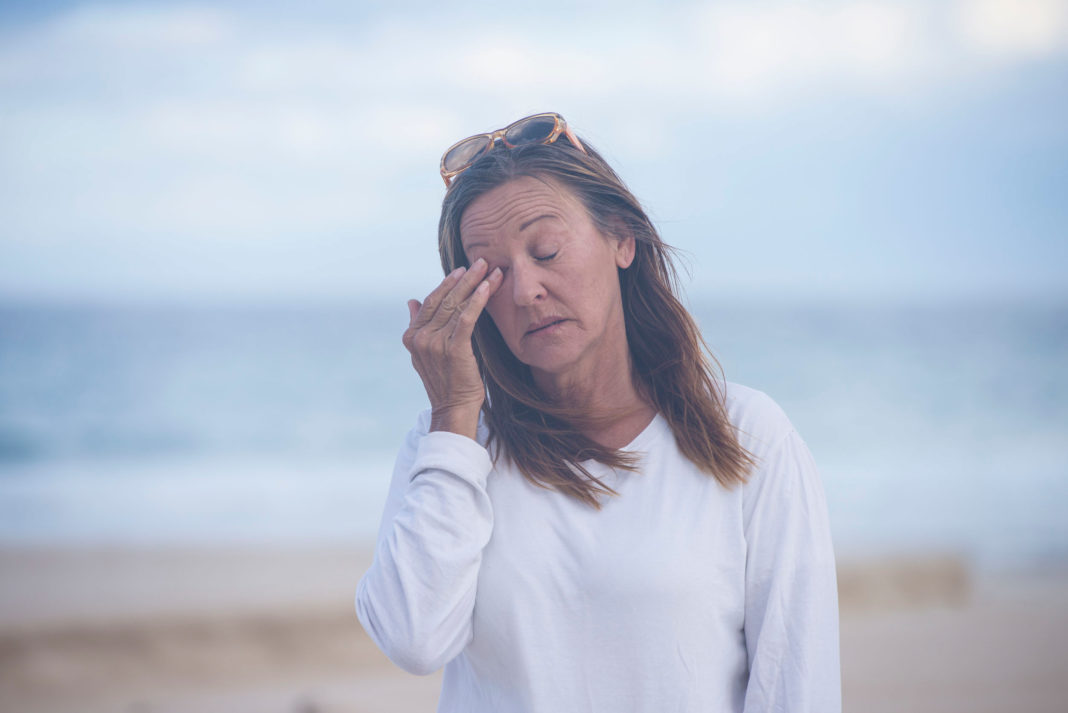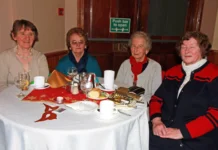The menopause is a challenging and potentially overwhelming time for women. According to research by A.Vogel, three quarters of women feel unprepared for the menopause.
Only one in four women know what symptoms to expect, a third consulted their mother to gain insight and nearly half used Google to research the topic.
A.Vogel nutritional therapist, Alison Cullen, explains some of the measures premenopausal women can take to help reduce its impact and make the menopausal transition as smooth an experience as possible.
PREMENOPAUSAL
This stage of gradually falling and fluctuating hormone levels is called perimenopause, which often begins in the mid 40s. The menopausal transition starts when the ovaries gradually begin to produce less oestrogen. Perimenopause lasts up until menopause, the point when the ovaries stop releasing eggs and periods stop.
In the last one to two years of perimenopause, as the decline of oestrogen accelerates, many women start experiencing menopausal symptoms.
PREPARING FOR THE TRANSITION
It will help if you start considering certain diet and lifestyle changes early to reduce the likelihood of a bad menopause. While hereditary factors can play a role in when you start the menopause, there are things you can do to make the experience less challenging.
Smoking – apart from presenting other health risks in your body, nicotine interferes with the production of oestrogen in your ovaries, contributing to early menopause.
Diet – a poor diet without adequate supply of vitamins, minerals and essential fatty acids means that your body is less able to deal with the various challenges it faces, and menopausal symptoms are likely to be worse.
Exercise – exercise can relieve stress because it gets your endorphins (happy chemicals) going, which is important because stress can interfere with the normal production of oestrogen.
Stress – this is a huge factor because the adrenal glands can help the body to adapt to fluctuating levels of hormones. They cannot, however, do this effectively if they are flat out already, dealing with high stress levels in daily life. Symptoms are therefore likely to become more extreme.
To assist your body to cope with all the demands of the menopausal transition without frazzling your nerves, reduce or remove caffeine from your diet and drink plenty of water to stay hydrated. Exercise triggers endorphins in your body, so try a 10-minute walk every day to keep them flowing, and pencil in plenty of relaxation time.
As periods become less frequent during the perimenopause and menopause, the body loses one of its exit routes for toxins. The more toxins there are in the body, the more likely are skin problems, digestive disorders and arthritic complaints.
TIPS
The following top tips will help flush toxins from your system: Drink at least 1.5 litres of plain water daily; Cut out coffee and take a maximum of two cups of tea per day
Eat regularly and calmly; Reduce refined carbohydrates such as refined sugar, white bread, white pasta and white rice; Eat more phyto-oestrogenic foods such as almonds, apples, bananas, broccoli, cabbage, carrots, cashews, cauliflower, celery, cucumber, green beans, oats, parsnips, peas, sunflower, sesame and pumpkin seeds; Eat more non-dairy calcium-containing foods such as brazil nuts, brown rice, figs, kidney beans oats, pine kernels, salmon, sardines, watercress and white cabbage; Exercise daily.
MENOPAUSE
There is no fixed age or time for the menopausal transition to start. The average age for a woman to reach menopause is 52. However, the transition has been known to start as early as 35 or as late as 60 years of age.
It is often a time of great emotional upheaval and the A.Vogel research shows women struggle to cope with night sweats the most (51%), closely followed by sweating during the day (43%), irritability and tearfulness (42%), disturbed sleep (40%) mood swings (33%) aching joints (24%).
Menopausal symptoms can sometimes turn into a vicious circle with night sweats disturbing sleep and sleeplessness leaving you groggy and emotional during the day which undermines confidence at work and in social situations.
So minimising the knock on effects of sleeplessness is essential to feeling your normal revitalised self during the day. Typical menopause symptoms usually last for the whole menopausal transition (until the mid 50s) but some women may experience them for longer.
A HANDY HERB
A.Vogel Menoforce Sage tablets are a traditional herbal medicinal product used for the relief of excessive perspiration associated with menopausal hot flushes, including night sweats. It is exclusively based on long-standing use as a traditional remedy.
The herb sage is traditionally thought to possess the handy ability to rebalance the sweat-regulating mechanism in the brain. Sage can be taken either during the day to help reduce daytime flushes or before bed if night sweats disrupt your sleep.
Many women find it a pleasant alternative to HRT and there are no reported side effects. A.Vogel Menoforce RRP €16.25 for 30 tablets.












